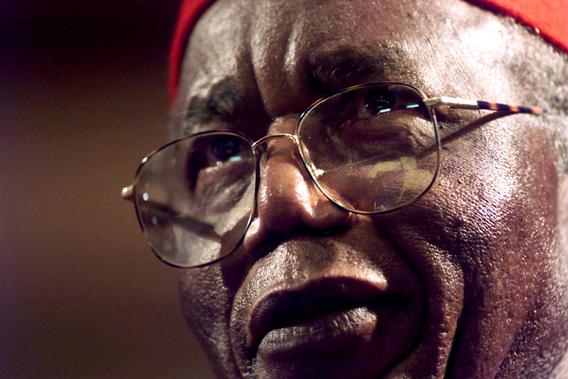If things had worked out a little differently, Albert Chinualumogu Achebe’s first book could have been lost to history. A London typing service “dismissed the handwritten manuscript—sent from Africa—as a joke,” notes the Wall Street Journal. Little did they know Things Fall Apart would eventually be seen as the foundation stone for African literature. When it was finally published in 1958, the book became a huge hit, propelling the Nigerian author to an unlikely fame and going on to selling 10 million copies in 50 languages.
“It literally invented African literature,” says Simon Gikandi, Kenyan author of Reading Chinua Achebe. The 82-year-old Nigerian, who had been living in the United States since a 1990 car accident left him paralyzed from the waist down, died Friday morning following a brief illness, his agent told the Associated Press.
Achebe first focused on the effects of colonialism in Africa, and then went on to harshly criticize the way the continent was being devastated by its own corrupt leaders with constant military coups and entrenched dictatorships, points out Reuters. Achebe won’t just be remembered for his own work, but also for being an early champion of several notable African writers, including Kenya’s Ngugi wa Thiong’o.
In 2004 and 2011 Achebe rejected two efforts by the Nigerian government to name him a Commander of the Federal Republic, a national honor, saying the country’s rulers seemed “determined to turn my homeland into a bankrupt and lawless fiefdom,” notes the Guardian.
